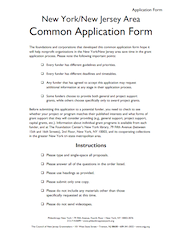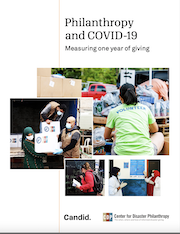Site Search
- resource provided by the Forum Network Knowledgebase.
Search Tip: Search with " " to find exact matches.
Flexible.png
...
More than a decade ago, the Council of New Jersey Grantmakers and Philanthropy New York spearheaded a project to develop common application and report forms to help streamline the grant...
Community foundations are beginning to deepen and shift how they work, adopting an anchor mission that seeks to fully deploy all resources to build community wealth. Moving into territory relatively uncharted for community foundations, they are taking...
This advocacy and civic engagement toolkit is designed for private foundations that want to educate and encourage their grantees about getting involved in civic and policy activities to increase organizational capacity and impact. While its primary...
Newark to Offer Affordable, Healthier Food Options for Residents
Through the office of the Newark Philanthropic Liaison, CNJG recently had the opportunity to convene a group of funders with the Brick City Development Corporation...
Foundations and nonprofits create more resilient and impactful change when their strategies are shaped by the communities most harmed by inequities. The COVID-19 pandemic taught us invaluable lessons about the importance of community listening and...
What comes after “strategic...?” If you said, “planning,” you’re not alone. And for many leaders of community foundations, especially small ones who don’t have the time or money for a big process, anxiety is the feeling that follows. If that’s the...

Bolder Advocacy works across the country to guide you and your organization through the intricacies of advocacy, to help you understand what’s allowable under the law, to build confidence, and to give you the tools you need to conduct effective...
Valley Bank has donated approximately $1 million to nearly 100 New Jersey-based organizations supporting relief efforts for COVID-19.
Through its Community Pledge Certificate of Deposit program, the bank has donated $2,183,000 to 264...
The United Way of Greater Newark has awarded more than $800,000 in grant funding to 15 community-based organizations in Newark to create and launch neighborhood-based mobile vaccination clinics as well as neighborhood-based outreach and public...
The New Jersey Economic Development Authority has approved 6,168 nonprofits and businesses for more than $74 million in funding through Phase 4 of its Small Business Emergency Assistance Grant Program, the organization said Tuesday.
The...
The Devils Youth Foundation, in an effort to bring life-changing opportunities to New Jersey’s youth through the power of sports and entertainment, recently committed its largest-ever grant, $100,000, to foundation partner La Casa de Don Pedro....
